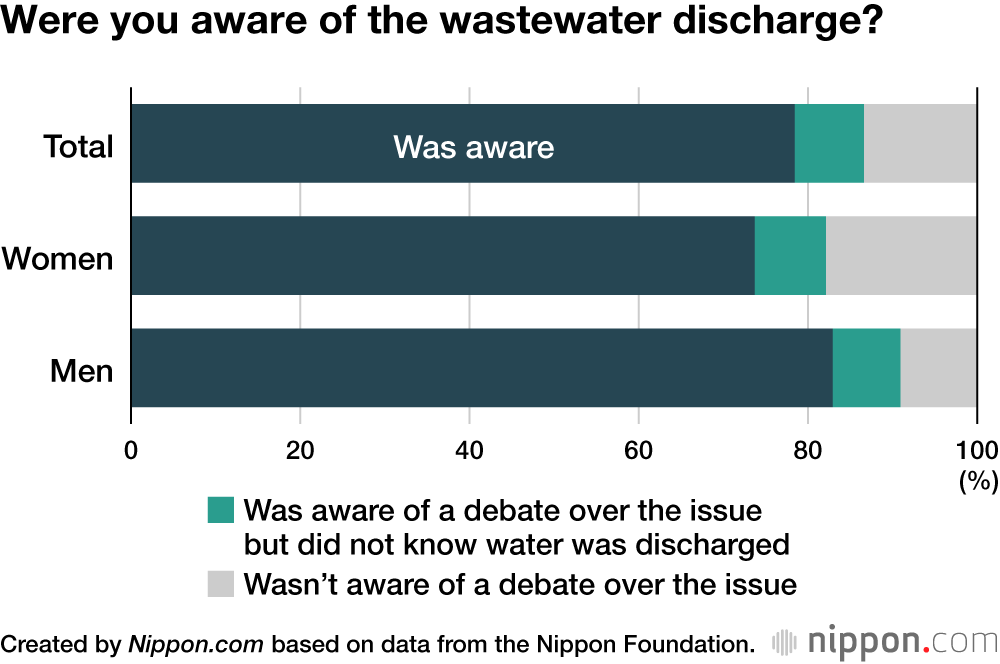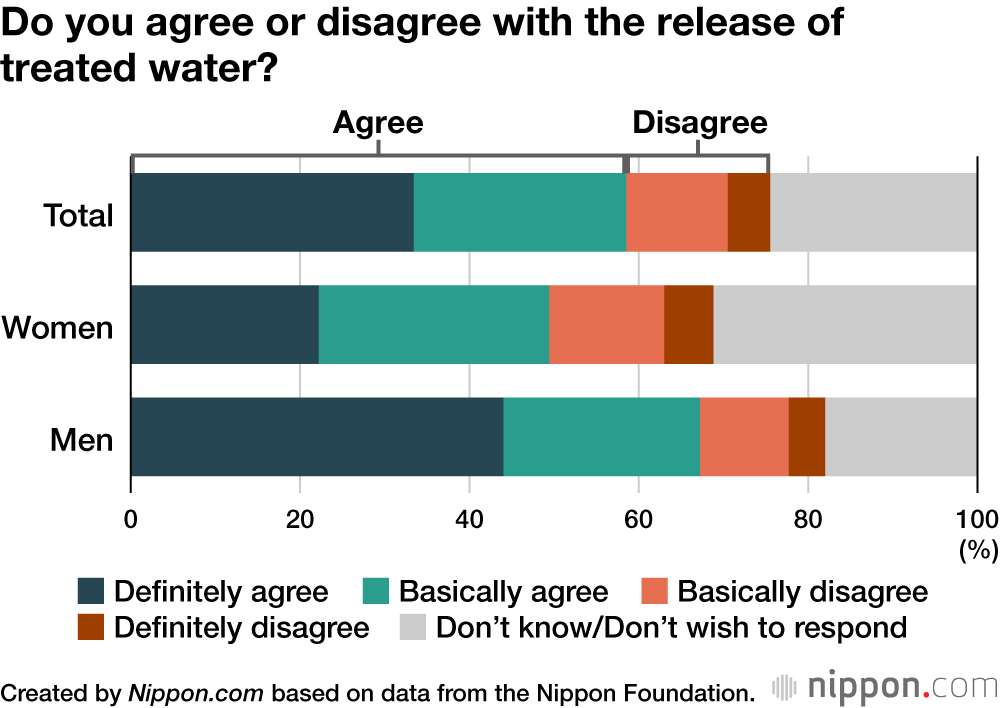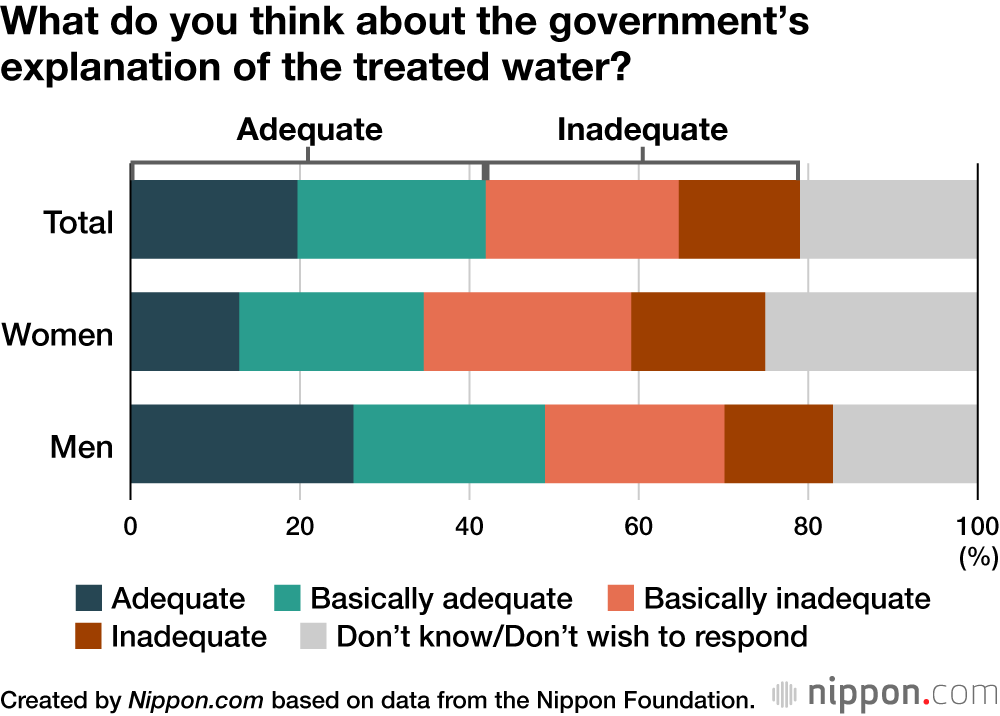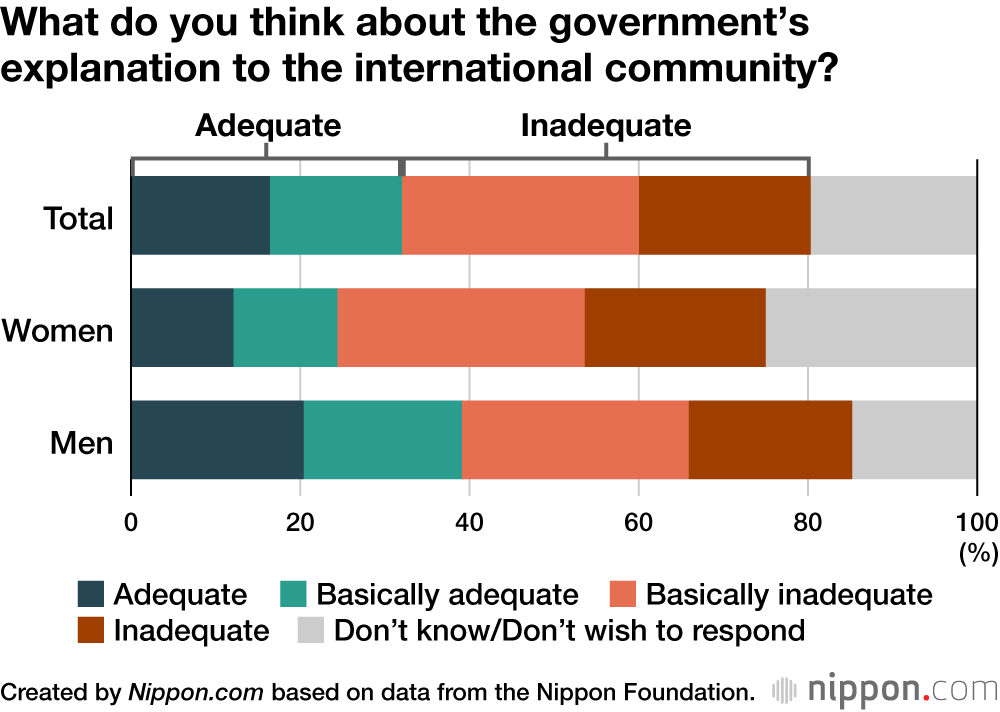
Survey of Japanese Teenagers Finds More Support for Fukushima Wastewater Release Among Young Men than Women
Society Education- English
- 日本語
- 简体字
- 繁體字
- Français
- Español
- العربية
- Русский
As part of an ongoing series of surveys, the Nippon Foundation asked 1,000 Japanese teenagers aged 17 to 19 about the release of treated wastewater into the sea from Fukushima Daiichi Nuclear Power Plant, operated by Tokyo Electric Power Company. The survey was conducted online over a two-day period in late October.
TEPCO has completed three rounds of discharge for treated wastewater that has accumulated at the power station. There have been no leaks or other issues and no increase in the concentration of radioactive tritium in the seawater, but concerns have been raised about reputational damage in the local area and elsewhere.
Among those surveyed, 78.4% were aware of the discharge of wastewater, with the level of awareness higher among young men, at 82.9%.
There was a notable difference between female and male respondents’ approval or disapproval of the release of treated water. Just under half (49.8%) of young women either definitely or basically agreed with the release, whereas the percentage was 67.2% among young men, including 44.0% who definitely agreed.
Concerning the government’s explanation of the release of treated water, 41.9% of all respondents found it “adequate” and 37.1% “inadequate,” with more men holding the former view and more women the latter.
The release of treated water has met with significant opposition within the international community, including China’s total embargo on Japanese seafood products. Many survey respondents expressed dissatisfaction with the government’s explanation to the international community, with 32.0% finding the explanation at least somewhat adequate, as compared to 48.3% who found it inadequate.
(Translated from Japanese. Banner photo © Pixta.)



